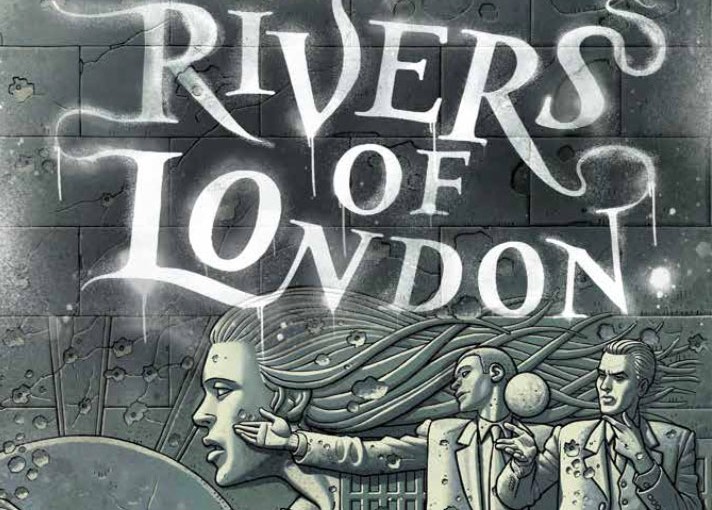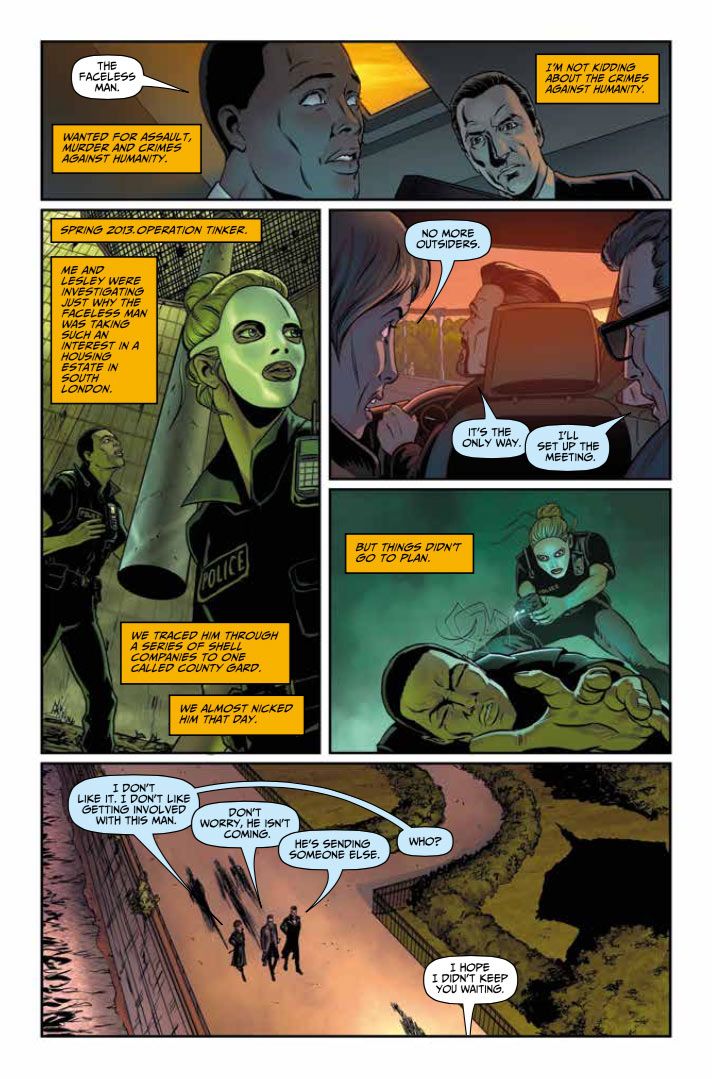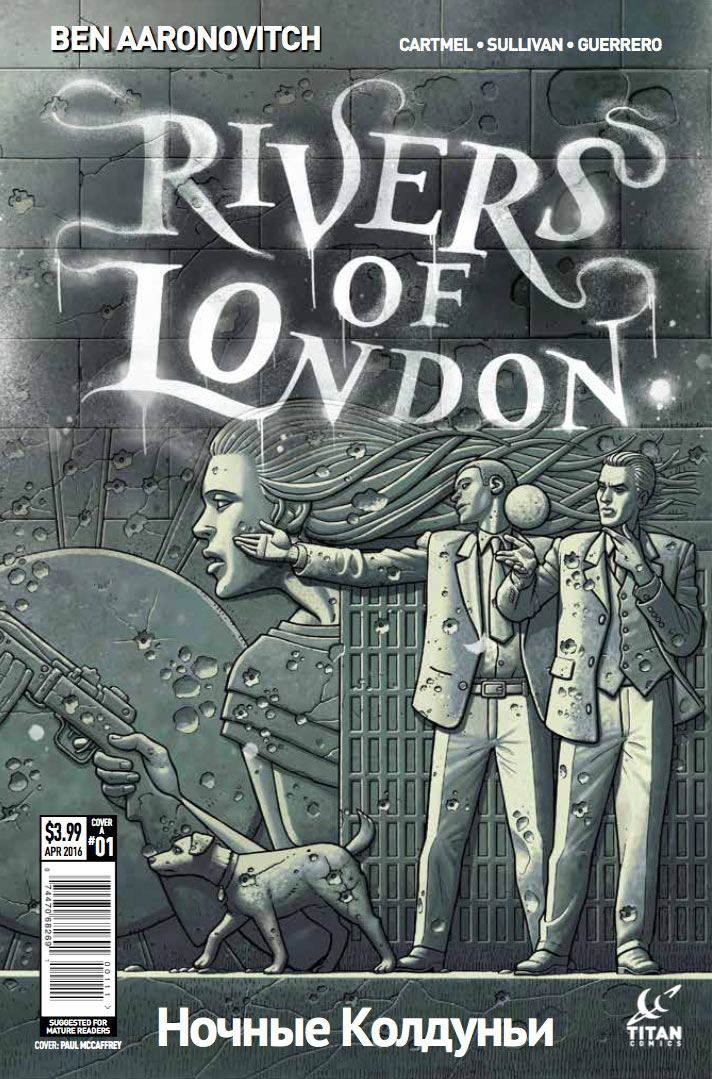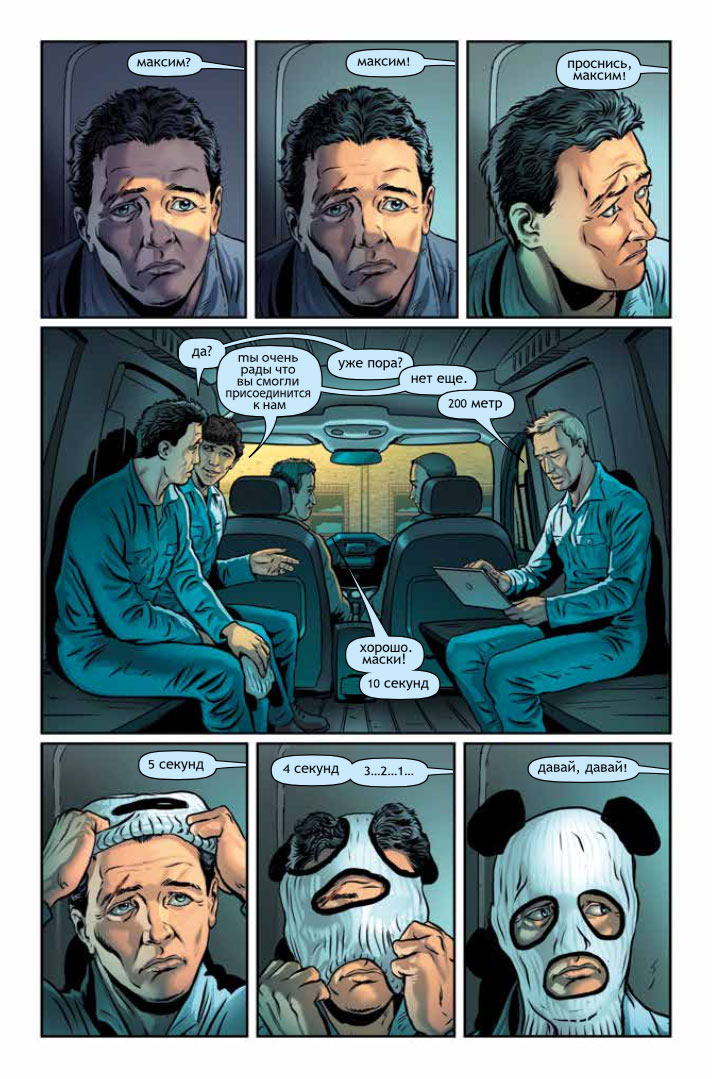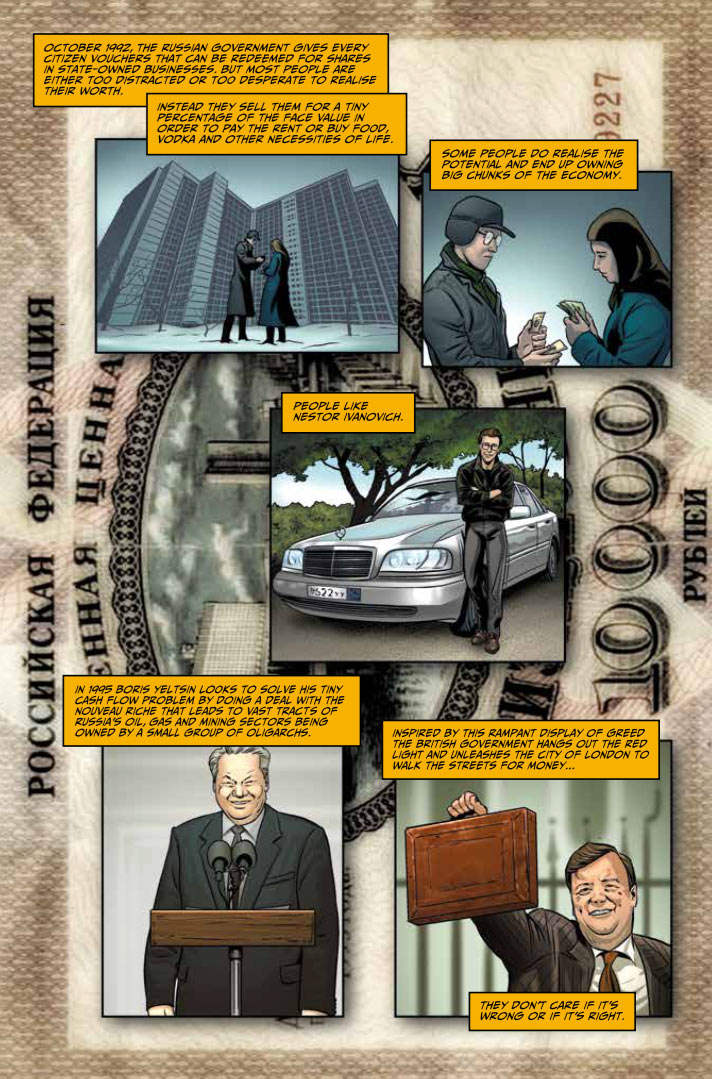Drawn from Ben Aaronovitch’s novel Rivers of London, this serialised comic is co-written by Andrew Cartmel, who was Aaronovitch’s script editor on the Doctor Who television series.
Chapter one, page one we’re sat in a van with a trio conversing urgently in Russian. Balaclavas are pulled on, shotguns grabbed and then it’s out into a London morning for a meeting with The Night Witch.
Issue 1 is rich in the back story, much of it set in Russia. Politics and power, money and migrants and military women practising the Old Religion.
Varvara Sidorovna is doing time at HM Prison Holloway but her army past is causing trouble in her London present. This hasn’t escaped the attention of police constable Peter Grant, who spots the mysterious Faceless Man behind recent events just as the Russians have turned their attention to him as well.
Artist Lee Sullivan is also no stranger to the Doctor Who franchise. Here he shows his talent for pushing a lot of character out of the faces in his panels without resorting to outlandish facial features. He’s got a good exchange going with his colourist, Luis Guerrero; a reflective laptop screen and the ‘golden hour’ before dusk come to mind particularly.
During one flashback, an actual Russian stock certificate fills the page behind the panels, bringing a sense of high-def to the necessarily bold shapes of comic art. The technique was a good choice here; the last time I was so delighted by it was long ago in an adaptation of The Vampire Lestat.
The trickiest part of the read was that the visual focus of issue 1 is relatively even; main story and back story are interlaced but the transitions between the two aren’t very marked.
As a newcomer to The Rivers of London, I found the story stood alone quite well but after some research, it seems like this chapter puts PC Grant – the main character – into the background somewhat. Perhaps this is because it’s not the first tale from the novel and it’s only the first bit of the serial.
Night Witch issue 1 is a cracking bit of urban fantasy overall. The pace is good and the international angle contributes to a freshness that no modern tale of London can do without.
